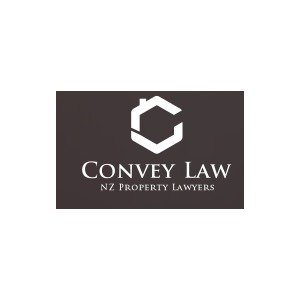Best Toxic Tort Lawyers in New Zealand
Share your needs with us, get contacted by law firms.
Free. Takes 2 min.
Or refine your search by selecting a city:
List of the best lawyers in New Zealand
About Toxic Tort Law in New Zealand:
Toxic tort law in New Zealand deals with legal disputes related to exposure to toxic substances that result in harm or injury. These cases often involve claims for compensation for the injuries and damages suffered due to the exposure. It is important to seek legal advice from a qualified lawyer if you believe you have been harmed by exposure to toxic substances.
Why You May Need a Lawyer:
You may need a lawyer in cases involving toxic torts to help you navigate the legal process, gather evidence to support your claim, and negotiate with the responsible parties or their insurance companies. A lawyer can also help you understand your rights, assess the strength of your case, and represent you in court if necessary.
Local Laws Overview:
In New Zealand, the legal framework for toxic tort cases is primarily based on the Health and Safety at Work Act 2015, which sets out the responsibilities of employers and others in relation to workplace health and safety. The Resource Management Act 1991 also addresses environmental issues related to toxic substances. Additionally, common law principles of negligence and strict liability may apply in toxic tort cases.
Frequently Asked Questions:
1. What is a toxic tort?
A toxic tort is a legal claim for harm or injury caused by exposure to toxic substances.
2. What types of damages can I claim in a toxic tort case?
You may be able to claim compensation for medical expenses, lost wages, pain and suffering, and other damages related to your injuries.
3. How do I prove that exposure to a toxic substance caused my injuries?
You will need to gather medical records, scientific evidence, witness statements, and other evidence to establish a causal link between the exposure and your injuries.
4. Who can be held liable in a toxic tort case?
Potentially liable parties may include manufacturers, distributors, employers, property owners, and others responsible for the presence of the toxic substance.
5. Is there a time limit for filing a toxic tort claim in New Zealand?
Yes, there are time limits for filing claims, so it is important to seek legal advice as soon as possible after discovering your injuries.
6. Can I file a claim for a toxic tort that occurred in the past?
There may be limitations on how far back you can go to file a claim, so it is best to consult with a lawyer to discuss the specifics of your situation.
7. What should I do if I suspect I have been exposed to a toxic substance?
Seek medical attention immediately, report the exposure to the appropriate authorities, and consult with a lawyer to discuss your legal options.
8. How much does it cost to hire a lawyer for a toxic tort case?
Many lawyers offer free initial consultations and may work on a contingency fee basis, meaning they only get paid if you win your case.
9. Can I settle a toxic tort case out of court?
Yes, many toxic tort cases are settled out of court through negotiations between the parties involved.
10. What should I look for in a lawyer for a toxic tort case?
You should look for a lawyer with experience handling toxic tort cases, a track record of success, and a good reputation for fighting for their clients’ rights.
Additional Resources:
For more information on toxic tort law in New Zealand, you can visit the Ministry for the Environment website or contact the Health and Safety at Work contact center for assistance.
Next Steps:
If you believe you have a toxic tort claim in New Zealand, it is important to seek legal advice from a qualified lawyer as soon as possible. They can help you understand your rights, assess the strength of your case, and guide you through the legal process to pursue the compensation you deserve.
Lawzana helps you find the best lawyers and law firms in New Zealand through a curated and pre-screened list of qualified legal professionals. Our platform offers rankings and detailed profiles of attorneys and law firms, allowing you to compare based on practice areas, including Toxic Tort, experience, and client feedback.
Each profile includes a description of the firm's areas of practice, client reviews, team members and partners, year of establishment, spoken languages, office locations, contact information, social media presence, and any published articles or resources. Most firms on our platform speak English and are experienced in both local and international legal matters.
Get a quote from top-rated law firms in New Zealand — quickly, securely, and without unnecessary hassle.
Disclaimer:
The information provided on this page is for general informational purposes only and does not constitute legal advice. While we strive to ensure the accuracy and relevance of the content, legal information may change over time, and interpretations of the law can vary. You should always consult with a qualified legal professional for advice specific to your situation.
We disclaim all liability for actions taken or not taken based on the content of this page. If you believe any information is incorrect or outdated, please contact us, and we will review and update it where appropriate.
Browse toxic tort law firms by city in New Zealand
Refine your search by selecting a city.

















